This procedure can increase the chances of getting pregnant normally. This is a low intervention procedure to help with the treatment of infertility – the sperm are washed in special media, concentrated and injected directly into the uterus. IUI is advised for patients with: low sperm count, low sperm motility, unexplained infertility, cervical issues and issues with erection.
UI Procedure:
In the IUI cycle, the ovary is stimulated through tablets and injections. Ovulation time is controlled with the administration of HCG. The IUI process is straightforward, painless and does not require anesthesia. Insemination is achieved by placing a speculum into the vagina so the cervix is visualized. A very fine, sterile catheter is placed into the cervix and into the uterine cavity where the sperm is deposited. Some women may experience cramps for which we advise the patient to take Panadol an hour before the IUI procedure.
Risks:
The risk of an infection very small (less than 1%) and to prevent this we prescribe antibiotics. Experiencing some spotting following IUI is normal. Patients are asked to avoid strenuous exercise on the day of procedure.
Success Rates:
Success rates of IUI are dependent on various factors including age, years of infertility and causes of infertility. Success rates vary between 8-20%. In cases where IUI is unsuccessful, we might recommend IVF, which has a higher success rate.
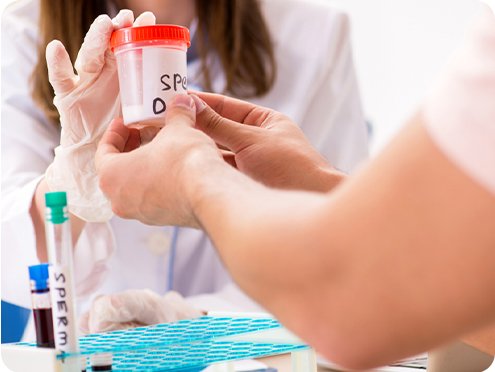
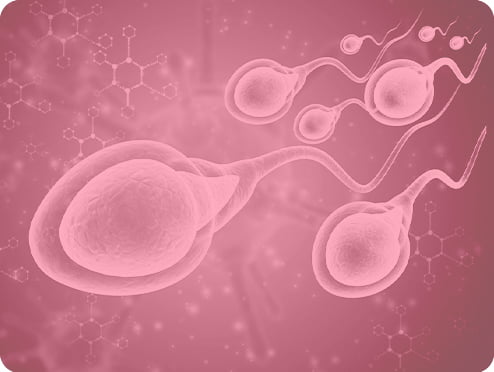
In Vitro Fertilization is a treatment where the egg (oocyte) and sperm are placed together in a special culture medium in which fertilization chances are significantly improved. The resulting embryos are graded according to their quality and inserted into the uterus, usually at the blastocyst stage (Day 5). All the procedures involved in the IVF cycle are performed in our state of the art center.
Steps involved in IVF include:
Suppression – In certain ivf protocols before starting the process of stimulation we suppress the ovaries for a short duration. This can be done with tablets or injections.
Stimulation – The aim of IVF is to stimulate the ovaries to increase the number of eggs collected, which is achieved with fertility medication. You will be monitored with blood tests and regular ultrasounds.
Egg Retrieval – This is a minor procedure carried out under anesthesia. A long fine needle is passed through the vagina into the ovary. The follicle is drained and collected in a tube. This fluid is checked for eggs by the embryologist. The eggs are counted, cleaned and then placed into an incubator. The egg retrieval procedure is a daycare procedure with low risk of complication. Later the same day the embryologist fertilizes the egg with your husband’s sperm by standard insemination technique or ICSI.
Embryo Culture – The embryologist monitors the fertilization of the egg and ensures growth is appropriate. The embryos are cultured in the incubator for 5 days. Growth is intermittently checked and the case discussed with the doctor to determine the best day of transfer which can be on Day 3 or most commonly Day 5. Our embryologists regularly update our patients regarding progress of the embryos.
Embryo Transfer – Embryo transfer is usually done on Day 5 after fertilization, occasionally on Day 3 after fertilization. The embryo is placed within the womb. This process requires no anesthesia and is painless. The numbers of embryos transferred depends upon their quality and numbers fertilized. We use embryo glue which aids in embryo implantation in the womb.
Pregnancy Test – Following the embryo transfer your pregnancy test is usually done between day 12-14.
Risks:
There are rarely any risks with the process of in vitro fertilization, but there can be some IVF related complications, which include:
Ovarian Hyperstimulation – The use of injections at the time of stimulation increases the number of eggs collected. However, in less than 1% of women severe ovarian hyperstimulation can occur. In severe cases of OHSS women get dehydrated, fluid can collect within the abdominal cavity and lungs. There can also be associated blood clotting abnormalities. To prevent OHSS from worsening, your cycle may be cancelled or embryo transfer delayed.
Multiple pregnancies are a known complication of IVF and their chances increase with multiple embryo transfer.
Ectopic Pregnancy – This is when the embryo implants outside the uterine cavity. The risk of ectopic pregnancy following IVF is approximately 2%.
Injury to surrounding pelvic structures at the time of ovum pickup.
Success rates:
Approximately
41-42% for women under age 35
30-35% for women between 35-37
23-26% for women between 38-40
12-17% for women over 40
Within the IVF process there are two different procedures – Standard Insemination and ICSI. In the standard procedure the eggs retrieved are cleaned and washed of debris. However, their cumulus cell complex is not touched and these eggs are combined with the sperm and left to fertilize naturally. In the ICSI procedure, the cell structure surrounding the egg is removed, and the egg quality and maturity is checked. A single sperm is injected into the egg’s cytoplasm. The embryo is then left to develop within a culture dish.
At the Fertility Clinic, we proceed with both ICSI and IVF concurrently and the process is left to the discretion of our embryologist.
ICSI is strongly recommended for those with: poor quality of sperm, poor quality of eggs, advanced maternal age or inability of the sperm to attach to the eggs.
Risks:
There are very few risks of embryo abnormality following IVF. When you get pregnant naturally, there is a 3-4% chance of major birth defects. However, with IVF/ICSI this increases by approximately 1%. New genetic testing (PGS/PGD), if requested by patients, makes it possible to reduce the risk of having a baby with abnormalities to negligible levels.
Success rates:
On average 25-30% success is seen in couples receiving ICSI treatment.
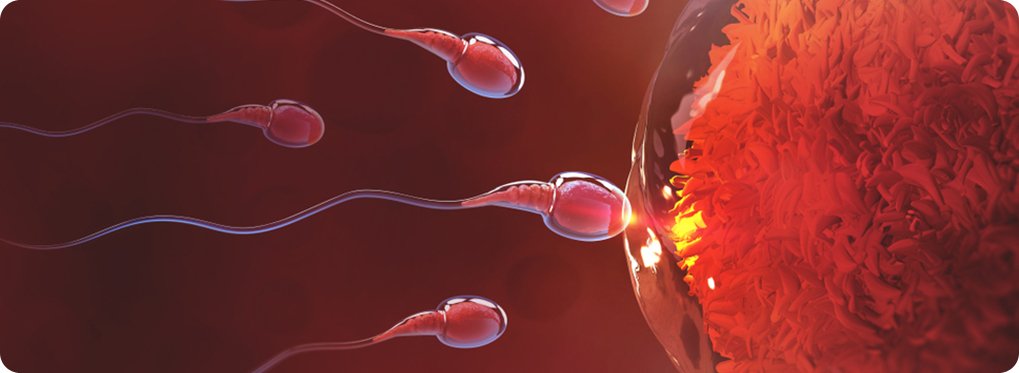
At TFC we offer the most advanced genetic testing that is available globally. These tests help provide assurance to the couple regarding the health of their embryos. Genetic screening is used to help ensure increased IVF success and a healthy embryo that does not have any abnormalities. These genetic tests help identify abnormalities that might affect embryo implantation, identify chromosomal abnormalities such as Down Syndrome, Cystic Fibrosis, Thalassemia and even allows parents to choose the gender of their baby if they so require.
Pre Implantation Genetic Diagnosis (PGD)
PGD is offered to patients who carry sex-linked genetic diseases, who have single-gene disorders and are 35 years and older. PGD helps with the diagnosis of specific genetic disorders in embryos such as Cystic Fibrosis, Thalassemia, Sickle Cell Disease, Spinal Muscular Dystrophy. We can perform PGD for most single gene disorders. Performing PGD and PGS in the same biopsy sample is possible. We offer our patients the most advanced internationally available technique for PGD.
Pre Implantation Genetic Screening (PGS)
PGS screens for chromosomal abnormalities using latest Next Generation Sequencing (NGS) techniques allow us to analyse all 24 chromosome types. Chromosomal abnormalities are detected prior to embryo transfer. The NGS technology accuracy rate is 99% and significantly increases pregnancy success at IVF. PGS is commonly offered to those couples who experience recurrent miscarriages, previous unsuccessful IVF, previously have had a baby with abnormality, or have advanced maternal age.
Gender Selection (GS)
Advances in reproductive techniques have allowed the possibility of prospective parents choosing the gender of their baby. Sometimes couples choose GS to help prevent gender specific disease like hemophilia. On other occasions, couples have a strong desire to complete or “balance” their families. At TFC, we offer GS using the latest Next Generation Sequencing (NGS) techniques.
This option offers the best chances of reducing multiple pregnancies following the IVF treatment. The embryo transfer is performed on Day 5 depending on the quality and grade of the embryos. Multiple pregnancies are associated with increased risk of complications including miscarriage and preterm delivery.
eSET is usually advised if you are young and have had previous successful fertility treatment and have an adequate store of good quality embryos.
Egg Freezing
Oocyte cryopreservation or egg freezing is possible at TFC. In the field of assisted reproductive technology this is a relatively new technique. This process increases a woman’s chances of getting pregnant at a later stage. Egg freezing allows women to preserve their fertility until they are ready to start a family. Oocyte freezing is also offered to women who are diagnosed with cancer and may undergo chemo/radiotherapy which could affect the chances of their future pregnancy. Pregnancy rates following egg freezing are approximately 30-35%.
Sperm Freezing
This allows freezing and storing the patient’s sperm. The system can store the sperm for a period of upto 10 years, in special containers. Pregnancy success rates using frozen sperm are similar to those when a fresh sample of sperm is used.
Sperm freezing is needed when the patient has: a low sperm count, risk of radio/chemotherapy, difficulty giving a semen sample on day of IVF or previous vasectomy.
Embryo Freezing
Following IVF treatment and transfer, the remaining best quality embryos can be frozen and stored to be used at a later date if the couple want/need to.
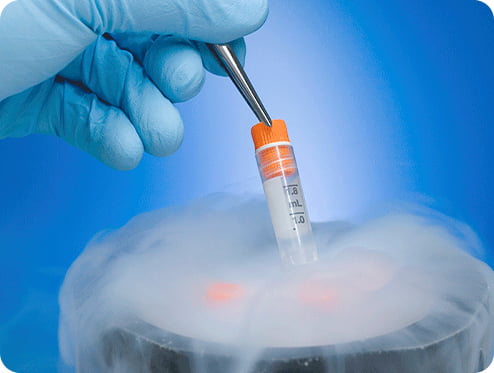
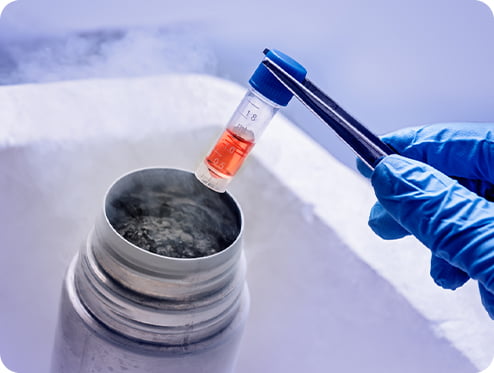
Endometrial Receptivity Analysis (ERA)
The ERA test checks the receptivity of the endometrium (the lining of the womb) and provides a specific and optimal time for embryo transfer for that individual patient. This test reduces the risk of failed implantation.
Whole Exome Sequencing (WES)
This is an advanced genetic test that looks at the genetic information present within our 24,000 genes. WES screening is advised for consanguineous marriage couples who have a higher risk of genetic abnormality in their offspring. The WES can be offered as a pre-marital screening test, for preconception screening and for help in diagnosis.
Carrier Genetic Test (CGT)
This is a blood test that can be done by parents prior to conceiving. The aim of this test is to identify specific genetic disorders which can be passed on to the baby. The disorders that can be identified include Hemophilia A, Polycystic Kidney diseases, Retinitis pigmentation, Cystic Fibrosis, Fragile X and many more.
Get in Touch
Contact Form
Book an appointment with a specialist or walk-in for a free consultation today. We will be more than happy to assist you!
Address
1 Bath Island Road, Bath Island, Clifton, Karachi
021-35361100 | 021-35361102 | 0345-3217997
Timings
Monday - Saturday
9:00 am to 6:00 pm
